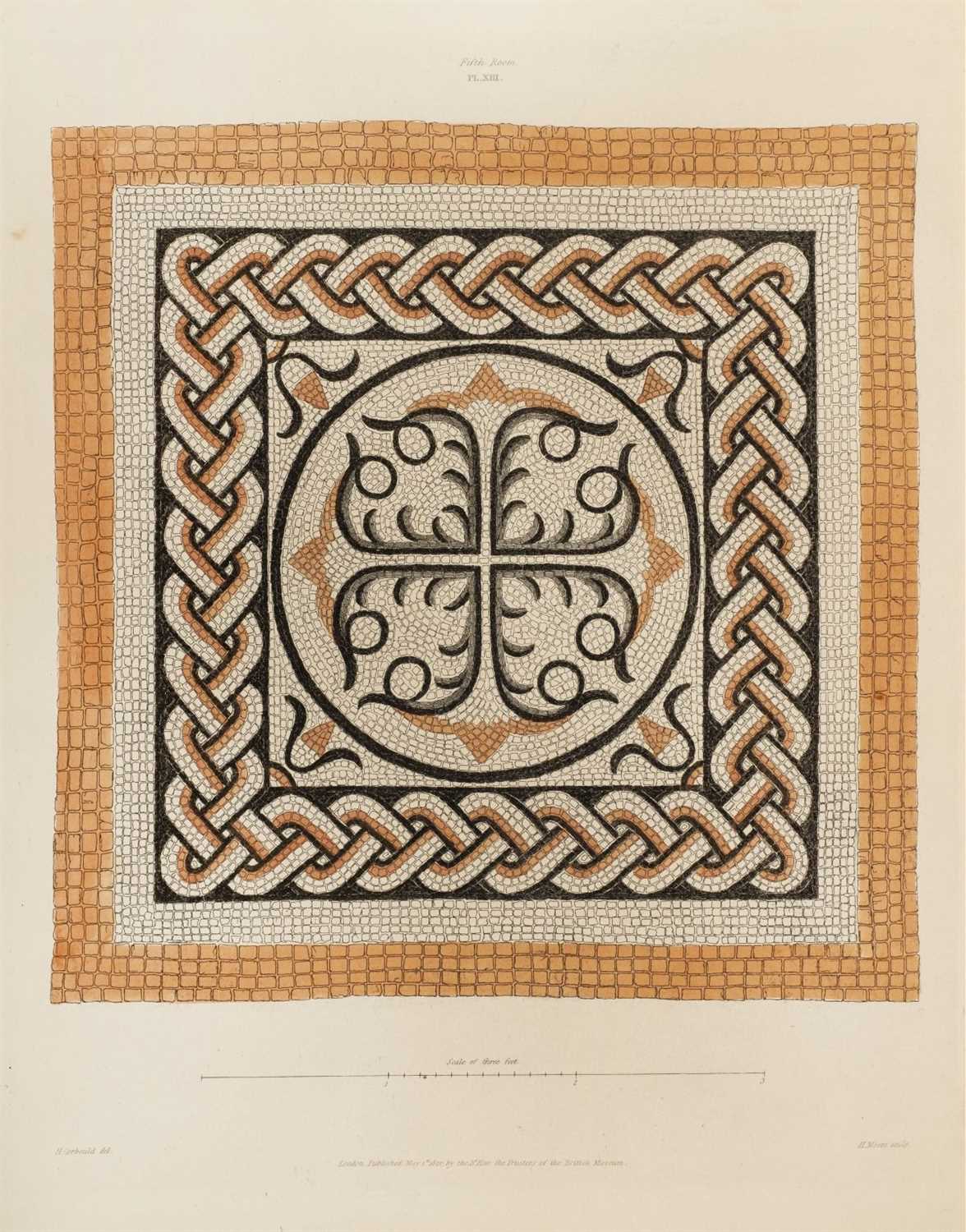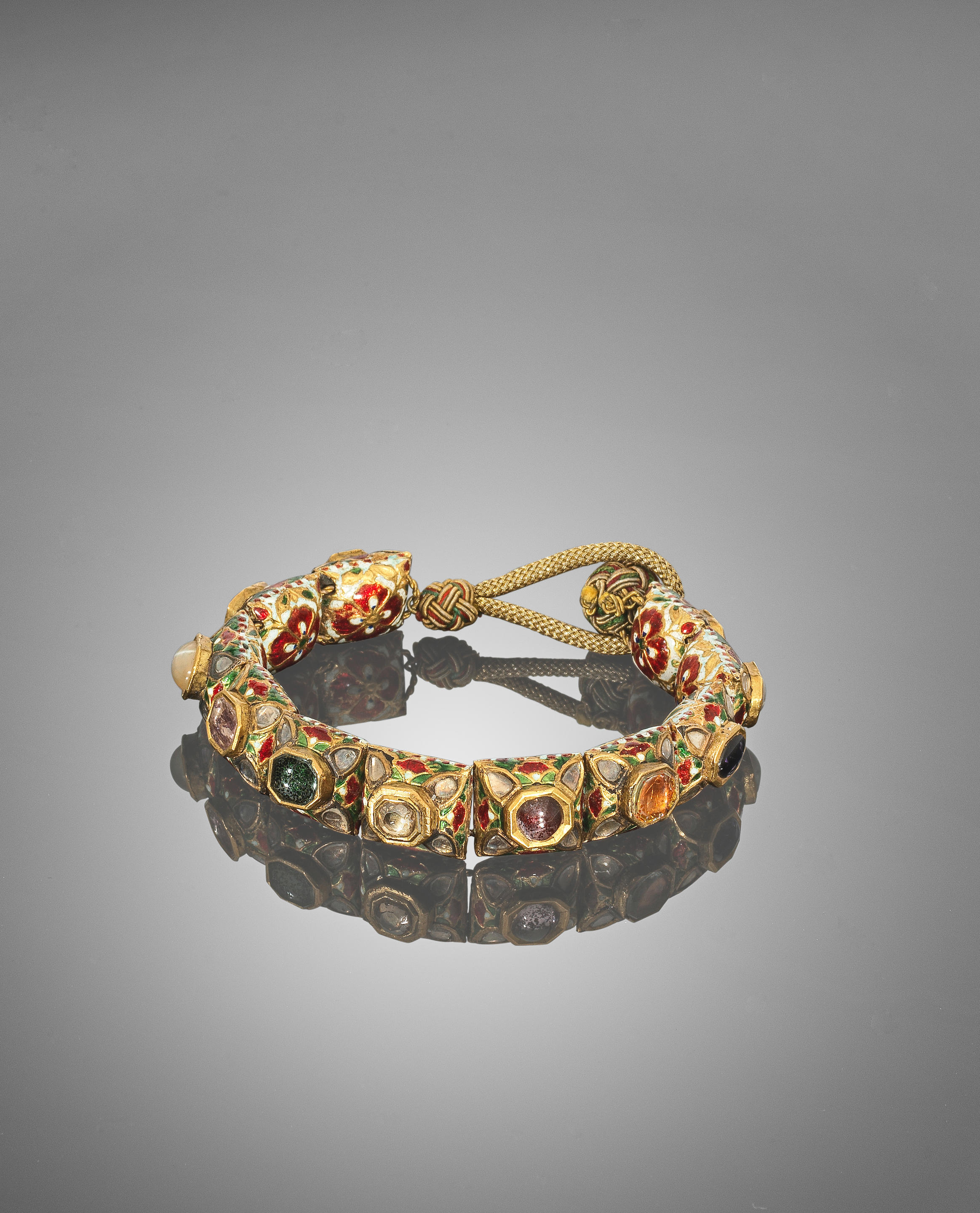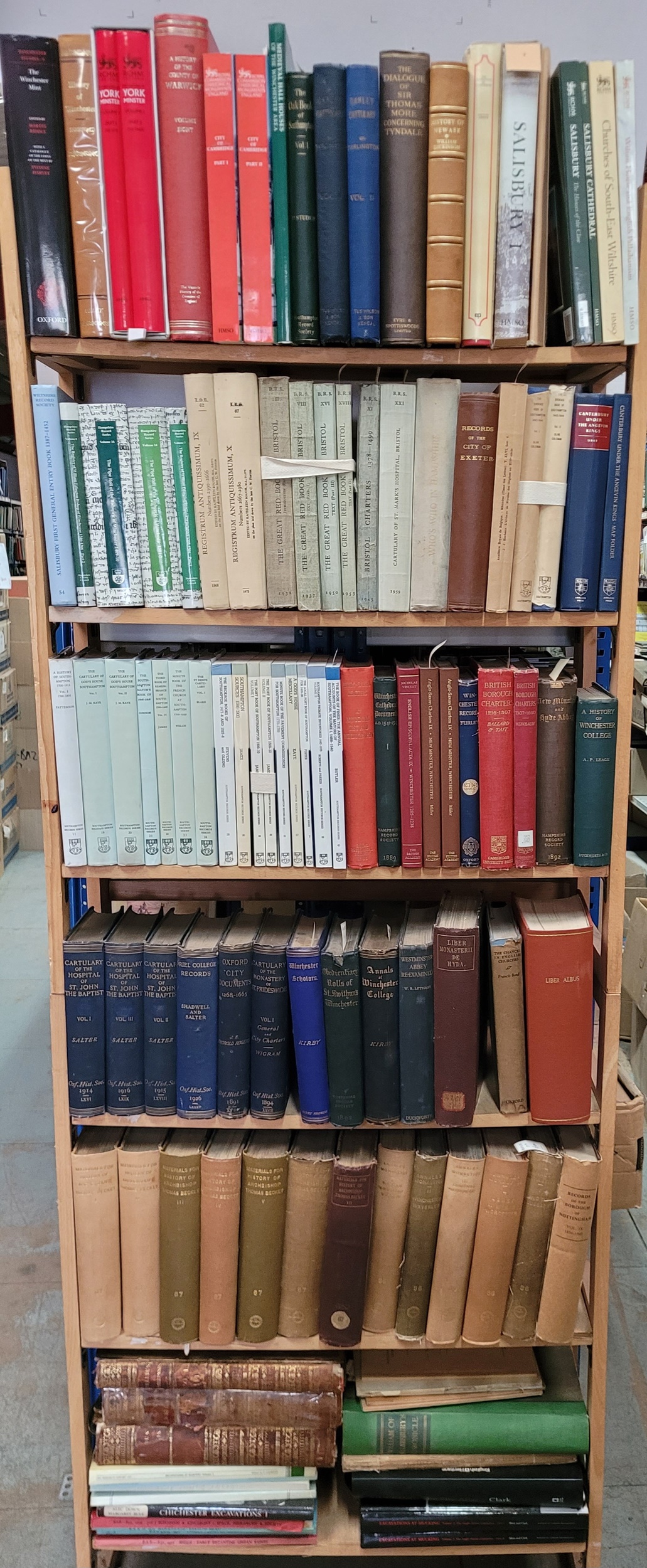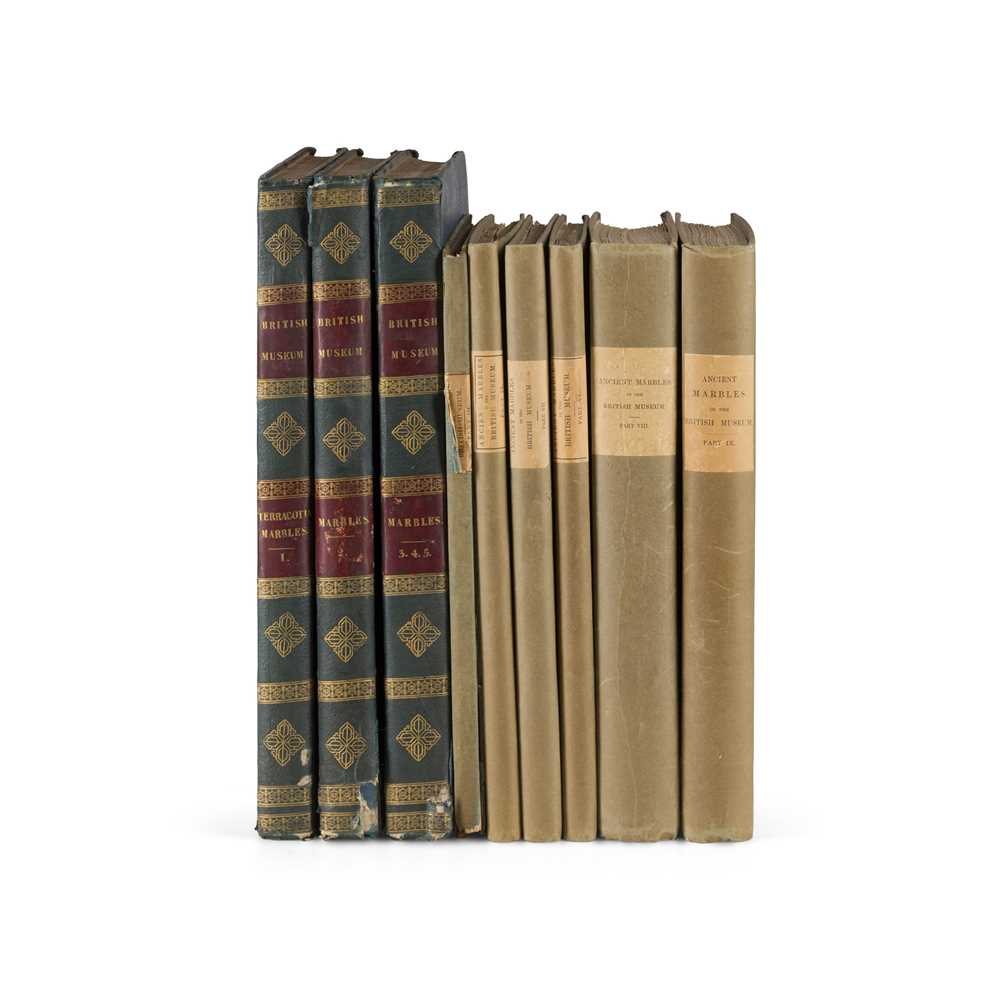The Collection of British Orders, Decorations and Medals formed by the late Fred Rockwood A Q.P.M. group of four awarded to Lieutenant-Colonel C. E. Richter, South African Police Queen’s Police Medal, (South African issue) E.II.R., for Distinguished Service (Kaptein C. E. Richter); Africa Service Medal 1939-45 (11272 (SAP) C. E. Richter); South Africa Police Faithful Service Medal (No. 11272 (F.) D./H./Constable C. E. Richter); South Africa Police Star for Merit (Lt. Kolonel C. E. Richter; 1.9.63), together with South African Academy for Language, Literature and Art, prize award, silver-gilt, the reverse named ‘Carl Richter’ and dated ‘2 October 1931’, very fine and better (5) £600-800 Footnote Queen’s Medal for Distinguished Service Government Gazette 9 November 1956: In ‘recognition of prolonged service distinguished by exceptional ability and meritorious service or for exceptional diligence and ability in the execution of their duties’. One of only 20 such awards. Carl Eduard Richter (1904-1965) is believed to have served as a bodyguard to four Prime Ministers. As confirmed by the following incident described in Rob Marsh’s Famous South African Crimes, he was certainly onetime bodyguard to Dr. Verwoerd: ‘On 2 September 1958, after the death of J. G. Striidom, Dr. Verwoerd become Prime Minister. The year 1960 was a dramatic one for South African politics and for Verwoerd personally. In January, he announced that a referendum would be called to determine the Republican Issue; the object would be a republic within the British Commonwealth. Two weeks later, Harold Macmillan, the then British Prime Minister, visited South Africa. In an address to both Houses of Parliament he made his famous 'winds of change' speech and criticised apartheid. On 21 March 1960, there was the Sharpeville massacre. Then, less than a month later, the first attempt to assassinate Dr. Verwoerd almost succeeded. On 9 April 1960, Dr. Verwoerd opened the Union Exposition on the Witwatersrand to mark the jubilee of the Union of South Africa. Having made his opening speech, he took his seat. Shortly afterwards, a fifty-two year-old farmer, David Pratt, walked up to him and fired two shots into his face. The police later gave the following account of the incident: 'After Verwoerd had made his opening speech, a man stepped up near to the front row of seats in which the Prime Minister was sitting. Some versions are that the man drew attention to himself by calling out, 'Dr. Verwoerd'. Other onlookers did not hear the Prime Minister's name being called. A shot was fired at virtually point-blank range into Dr. Verwoerd's right cheek from a .22 automatic pistol. A second shot was fired into his right ear. Colonel G..M. Harrison, president of the Witwatersrand Agricultural Society, leapt up and knocked the pistol from the gunman's hand. After the pistol fell to the floor, Colonel Harrison, with the help of Major (Carl) Richter (the Prime Minister's personal bodyguard), civilians and another policeman overpowered the gunman and hustled him to the show grounds Police Station. The arrest was made so quickly and the removal was done so quickly that an angry section of the crowd was frustrated from assaulting the detainee. The detainee, David Pratt, was soon thereafter hurried to Marshall Square [police station].’ Within minutes of the assassination attempt, Dr. Verwoerd was rushed - still conscious - to the Pretoria Hospital. Two days later, the hospital issued a statement which described his condition as 'indeed satisfactory - further examinations were carried out today and they confirm good expectations. Dr. Verwoerd at present is restful. There is no need for any immediate operation.' The surgeons who worked on Dr. Verwoerd would later claim that his escape had been 'absolutely miraculous'. One specialist declared that the firearm used ‘ ... could not have been anything bigger than a .22 bullet without causing very much more damage.' Other physicians agreed that if
The Collection of British Orders, Decorations and Medals formed by the late Fred Rockwood A Q.P.M. group of four awarded to Lieutenant-Colonel C. E. Richter, South African Police Queen’s Police Medal, (South African issue) E.II.R., for Distinguished Service (Kaptein C. E. Richter); Africa Service Medal 1939-45 (11272 (SAP) C. E. Richter); South Africa Police Faithful Service Medal (No. 11272 (F.) D./H./Constable C. E. Richter); South Africa Police Star for Merit (Lt. Kolonel C. E. Richter; 1.9.63), together with South African Academy for Language, Literature and Art, prize award, silver-gilt, the reverse named ‘Carl Richter’ and dated ‘2 October 1931’, very fine and better (5) £600-800 Footnote Queen’s Medal for Distinguished Service Government Gazette 9 November 1956: In ‘recognition of prolonged service distinguished by exceptional ability and meritorious service or for exceptional diligence and ability in the execution of their duties’. One of only 20 such awards. Carl Eduard Richter (1904-1965) is believed to have served as a bodyguard to four Prime Ministers. As confirmed by the following incident described in Rob Marsh’s Famous South African Crimes, he was certainly onetime bodyguard to Dr. Verwoerd: ‘On 2 September 1958, after the death of J. G. Striidom, Dr. Verwoerd become Prime Minister. The year 1960 was a dramatic one for South African politics and for Verwoerd personally. In January, he announced that a referendum would be called to determine the Republican Issue; the object would be a republic within the British Commonwealth. Two weeks later, Harold Macmillan, the then British Prime Minister, visited South Africa. In an address to both Houses of Parliament he made his famous 'winds of change' speech and criticised apartheid. On 21 March 1960, there was the Sharpeville massacre. Then, less than a month later, the first attempt to assassinate Dr. Verwoerd almost succeeded. On 9 April 1960, Dr. Verwoerd opened the Union Exposition on the Witwatersrand to mark the jubilee of the Union of South Africa. Having made his opening speech, he took his seat. Shortly afterwards, a fifty-two year-old farmer, David Pratt, walked up to him and fired two shots into his face. The police later gave the following account of the incident: 'After Verwoerd had made his opening speech, a man stepped up near to the front row of seats in which the Prime Minister was sitting. Some versions are that the man drew attention to himself by calling out, 'Dr. Verwoerd'. Other onlookers did not hear the Prime Minister's name being called. A shot was fired at virtually point-blank range into Dr. Verwoerd's right cheek from a .22 automatic pistol. A second shot was fired into his right ear. Colonel G..M. Harrison, president of the Witwatersrand Agricultural Society, leapt up and knocked the pistol from the gunman's hand. After the pistol fell to the floor, Colonel Harrison, with the help of Major (Carl) Richter (the Prime Minister's personal bodyguard), civilians and another policeman overpowered the gunman and hustled him to the show grounds Police Station. The arrest was made so quickly and the removal was done so quickly that an angry section of the crowd was frustrated from assaulting the detainee. The detainee, David Pratt, was soon thereafter hurried to Marshall Square [police station].’ Within minutes of the assassination attempt, Dr. Verwoerd was rushed - still conscious - to the Pretoria Hospital. Two days later, the hospital issued a statement which described his condition as 'indeed satisfactory - further examinations were carried out today and they confirm good expectations. Dr. Verwoerd at present is restful. There is no need for any immediate operation.' The surgeons who worked on Dr. Verwoerd would later claim that his escape had been 'absolutely miraculous'. One specialist declared that the firearm used ‘ ... could not have been anything bigger than a .22 bullet without causing very much more damage.' Other physicians agreed that if















Try LotSearch and its premium features for 7 days - without any costs!
Be notified automatically about new items in upcoming auctions.
Create an alert